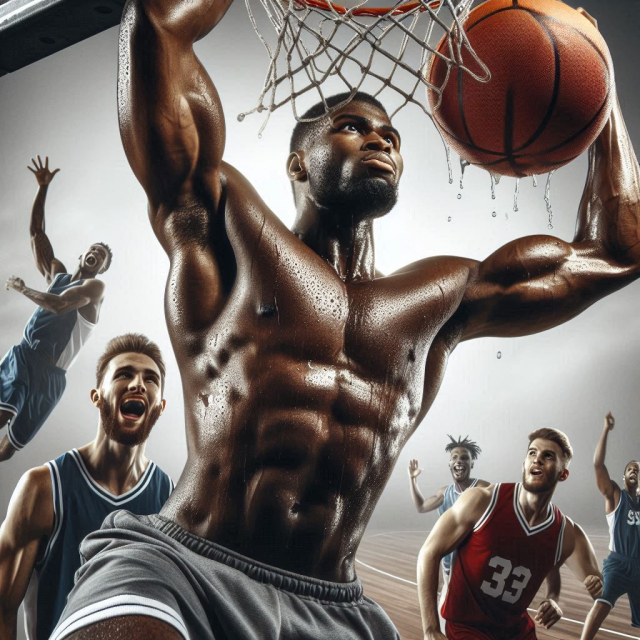Becoming an elite athlete is not an easy task. It requires dedication, sacrifice, and a comprehensive approach that ranges from physical and mental preparation to nutrition and recovery. This article explores the keys and essential strategies that must be followed to achieve success in the world of high-performance sports.
Identifying Talent and Choosing the Right Sport.
Discovering your Talent.
The first step towards becoming an elite athlete is to identify your natural talent and choose the right sport. It is crucial to start from a young age, although some exceptional athletes have shown that it is possible to reach high levels by starting later.
Tests and Evaluations.
Participating in tests and evaluations can help identify your strengths and weaknesses. These evaluations may include physical fitness tests, sport-specific skills analysis, and psychological evaluations to better understand your mental predisposition.
Training and Physical Preparation.
Personalized training.
Training should be sport-specific and personalized for each individual. A professional trainer can design a training program that maximizes your physical, technical and tactical capabilities.
Strength and Conditioning Exercise.
Strength and conditioning training is essential to improve endurance, speed, agility and power. Incorporating weight lifting exercises, cardiovascular training, and plyometric exercises is essential.
Flexibility and Injury Prevention.
Flexibility is key to preventing injuries. Incorporating stretches and mobility exercises into your daily routine can improve flexibility and reduce the risk of injury.
Nutrition and Supplementation.
Balance diet.
A balanced diet is vital for sports performance. Eating a variety of foods that provide all the necessary nutrients, including carbohydrates, proteins, healthy fats, vitamins and minerals, is crucial.
Hydration.
Adequate hydration is essential for performance and recovery. Drinking enough water before, during and after exercise helps maintain fluid and electrolyte balance in the body.
Sports supplements.
In some cases, supplements may be beneficial. Consulting with a sports nutritionist can help you determine which supplements, if any, are right for you.
Mental Preparation.
Sports Psychology.
Mental preparation is as important as physical preparation. Working with a sports psychologist can help you develop the mental resilience, focus and confidence needed to compete at the highest level.
Relaxation and Visualization Techniques.
Incorporating relaxation and visualization techniques into your daily routine can improve your performance. Meditation, deep breathing, and visualization of competition situations can help you manage stress and anxiety.
Technical and Tactical Training.
Improvement of Specific Skills.
Constantly working on improving your sport-specific skills is essential. This may include individual practice, sessions with specialized trainers, and video analysis to identify areas for improvement.
Tactical Strategies.
Developing a deep understanding of your sport's tactical strategies can give you a competitive advantage. Studying your opponents, analyzing previous games, and working on strategies with your team and coaches is crucial.
Recovery and Rest.
Importance of Rest.
Adequate rest is essential for recovery and performance. Getting enough sleep and taking scheduled rest days can prevent burnout and injuries.
Recovery Therapies.
Incorporating recovery therapies such as massage, cryotherapy, ice baths, and assisted stretching can speed recovery and improve performance.
Support and Resources.
Support team.
Surrounding yourself with a strong support team, including coaches, nutritionists, sports psychologists and physiotherapists, is essential. This team can provide the guidance and support needed to achieve your goals.
Financial resources.
Elite sport can be expensive. Seeking sponsors, grants, and other forms of financial support can be crucial to funding your training, equipment, and competitions.
Competence and Experience.
Participation in Competitions.
Participating in competitions regularly is vital to gain experience and measure your progress. Starting with local competitions and progressing to national and international levels can help you develop your skills and gain recognition.
Performance Analysis.
Analyzing your performance in the skills is essential to identify areas for improvement. Working with your coach to review your performances and adjust your training accordingly is key to continued progress.
Handling Failure and Adversity.
Resilience.
The road to success is full of ups and downs. Developing resilience to handle failure and adversity is crucial. Seeing setbacks as opportunities to learn and grow can help you stay motivated.
Emotional Support.
Having emotional support from family, friends, and mentors can be invaluable. Having someone to talk to and support you during difficult times can make a big difference in your emotional well-being.
Ethics and Professionalism.
Ethical Conduct.
Maintaining ethical conduct both on and off the field is essential to building a sustainable and respected career. This includes playing fair, respecting your opponents, and adhering to the rules and regulations of your sport.
Professionalism.
Professionalism ranges from your attitude and behavior to the way you handle your relationships and responsibilities. Being punctual, committed and respectful in all aspects of your career can help you earn the respect of your teammates, coaches and fans.
Becoming an elite athlete is a challenging and rewarding journey that requires dedication, discipline and comprehensive preparation. From identifying your talent and choosing the right sport, to working on your physical and mental preparation, each step is crucial to achieving success. With the right support, strategic planning and a resilient attitude, it is possible to achieve your goals and stand out in the world of high-performance sports.
The road may be long and demanding, but the benefits and satisfaction that come with it are worth it. The combination of talent, hard work, mental preparation and the support of a strong team can lead you to achieve extraordinary things in your sporting career.






